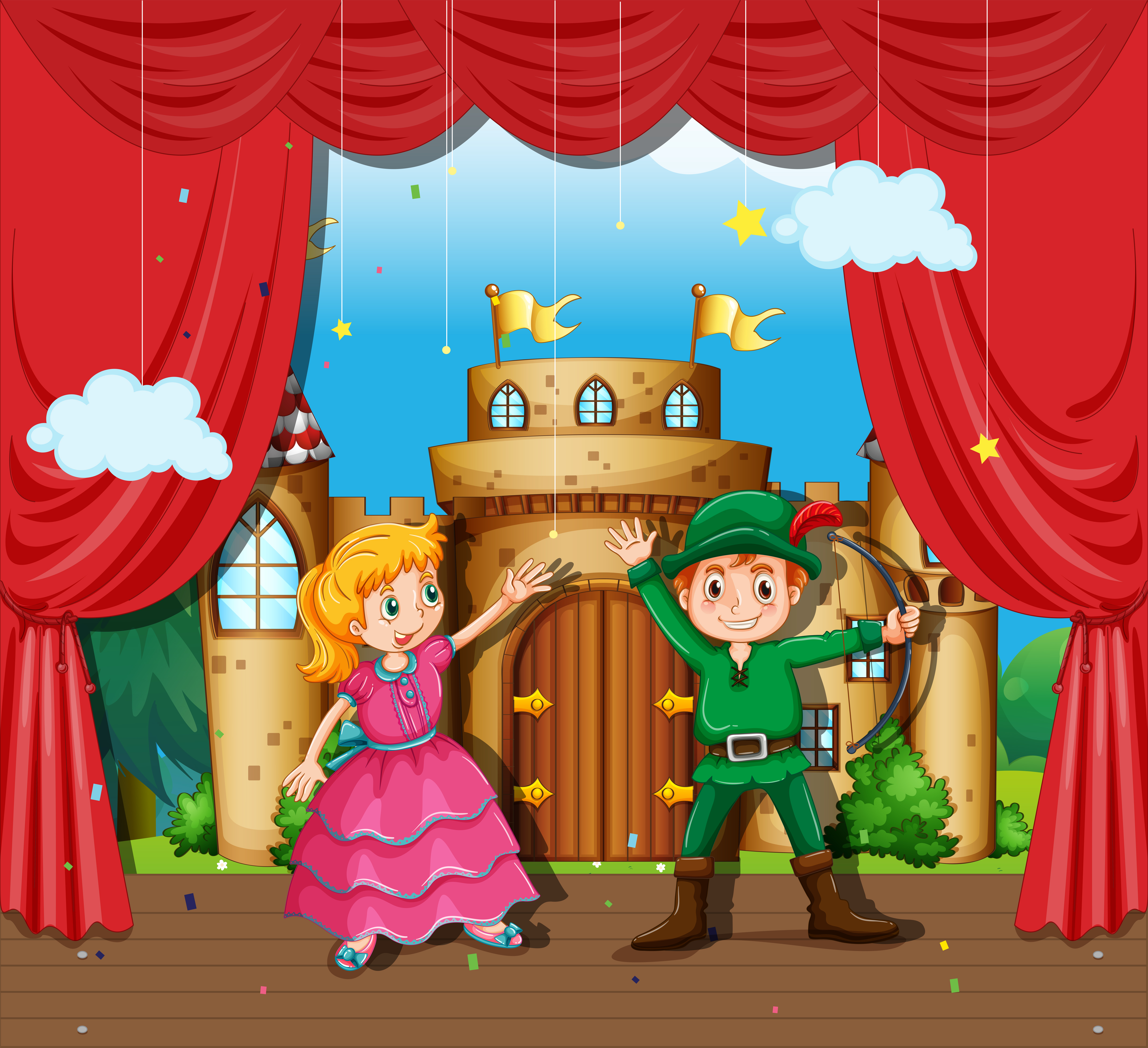How your child plays will change, depending upon their age. Play is important work in early childhood.
Kids Play Stage, There are 6 stages of play. This may happen when a child is shy, or unsure of the rules, or is hesitant to join the game.

There are 6 stages of play. This is the time of year when many people are busy rehearsing plays and musicals in time for performances around christmas time: Very bestest christmas present, the This stage of play often runs concurrently with solitary play.
One act play, cherokee removal from homeland.
These are original play scripts for kids and teens that you will not find anywhere else. The speed and efficiency of thought increases, spatial working memory improves, emotional regulation becomes greater, planning and problem solving skills increase, and scientific reasoning and ability to understand one’s own thinking develops. Twas the night before christmas: In 1929, mildred parten published her thesis in which she outlined the 6 stages of play. This is also commonly known as spectator play. These changes are called “stages of play”.

Play stage (about age two through six): Encourage role play games within your class with our performance stage. This blog post will examine ways you can apply piaget’s stages of cognitive. Watch to see how play changes by. There are 6 stages of play.
 Source: flickr.com
Source: flickr.com
(pruning continues during the stage). Exalt children�s talents with our amphitheatre performance stage. Stages of play is a theory and classification of children�s participation in play developed by mildred parten newhall in her 1929 dissertation.[1] parten observed american preschool age (ages 2 to 5) children at free play (defined as anything unrelated to survival, production, or profit). How your child.
 Source: grkids.com
Source: grkids.com
These are play stages that children pass through in their first 5 years of age. The play has a flexible cast with anywhere from 8 characters to dozens of parts. Learn more about how the power of play can help children learn important skills and prepare them for the world. Children�s play, children hitch a ride to future. Right from.

*download up to ten plays for $9.95! Piaget and play based learning. A recent disaster at the local power station where they used to work has devastated the area and they live under the threat of radiation pollution. These stages are unoccupied play, solitary play, onlooker play, parallel play, associative play, and cooperative play. Children�s play, children hitch a ride.
 Source: pinterest.fr
Source: pinterest.fr
School play, large cast for young performers. Very bestest christmas present, the This may happen when a child is shy, or unsure of the rules, or is hesitant to join the game. Encourage role play games within your class with our performance stage. This is the time of year when many people are busy rehearsing plays and musicals in time.
 Source: china.org.cn
Source: china.org.cn
This is the stage just before children start actually playing together. In this stage, a child learns to apply a logical sequence to her pretending.if she wants to give her doll a bath, for example, she will take off her clothes before doing so. Learn more about how the power of play can help children learn important skills and prepare.
 Source: pinterest.co.kr
Source: pinterest.co.kr
In an environment such as this, it’s good to have toys that can be shared easily, such as a big bag of blocks, a large container of crayons or. There are six stages of play. These stages are unoccupied play, solitary play, onlooker play, parallel play, associative play, and cooperative play. A recent disaster at the local power station where.
 Source: vecteezy.com
Source: vecteezy.com
There are six stages of play. This is when a baby moves for no reason, such as kicking their legs. Piaget and play based learning seem to go together quite well because piagetian theories reinforce the idea that children learn through play. How your child plays will change, depending upon their age. Learn more about how the power of play.
 Source: spectator.uiowa.edu
Source: spectator.uiowa.edu
It is a normal stage in a child’s development and does not necessarily indicate that the child is hesitant and scared to engage. This may happen when a child is shy, or unsure of the rules, or is hesitant to join the game. This is the stage just before children start actually playing together. Very bestest christmas present, the The.
 Source: pinterest.com
Source: pinterest.com
Piaget and play based learning. The speed and efficiency of thought increases, spatial working memory improves, emotional regulation becomes greater, planning and problem solving skills increase, and scientific reasoning and ability to understand one’s own thinking develops. Play is an important part of a child�s healthy development. A recent disaster at the local power station where they used to work.
 Source: pinterest.com.au
Source: pinterest.com.au
School play, children�s christmas musical play. There are 6 stages of play. Spark friendships and communication within your school with our amphitheatre performance stage. The speed and efficiency of thought increases, spatial working memory improves, emotional regulation becomes greater, planning and problem solving skills increase, and scientific reasoning and ability to understand one’s own thinking develops. Low cost pdf purchase.
 Source: trusper.com
Source: trusper.com
When children play independently, they exercise their motor and intellectual skills. A musical version of the classic tale about a boy who must travel to the fair to sell his beloved cow. These changes are called “stages of play”. One act play, cherokee removal from homeland. They decide to create problems in the peaceful kingdom of chalupa.
 Source: metroactive.com
Source: metroactive.com
In this stage, a child learns to apply a logical sequence to her pretending.if she wants to give her doll a bath, for example, she will take off her clothes before doing so. Children play side by side with similar toys, but there is a lack of group involvement. This is also commonly known as spectator play. Your child is.
 Source: vecteezy.com
Source: vecteezy.com
This is also commonly known as spectator play. All of the stages of play involve exploring, being creative, and having fun. Inspire children to learn how to play music with our performance stage. Though it seems like there is no interaction, the children are actually paying attention to each other which begins to spark the desire for social play. School.
 Source: pinterest.com
Source: pinterest.com
This is when a baby moves for no reason, such as kicking their legs. The legend of mulan (32+) new. They are especially written for young performers with simple, easy to memorize dialogue and flexible casting so all your kids can join in the fun. There are six stages of play. Inspire children to learn how to play music with.
 Source: inhabitat.com
Source: inhabitat.com
The play has a flexible cast with anywhere from 8 characters to dozens of parts. Parallel play is usually found with toddlers, although it happens in any age group. Spark friendships and communication within your school with our amphitheatre performance stage. In an environment such as this, it’s good to have toys that can be shared easily, such as a.
 Source: rainonatinroof.com
Source: rainonatinroof.com
In an environment such as this, it’s good to have toys that can be shared easily, such as a big bag of blocks, a large container of crayons or. Each child is an individual, and as such, plays differently, but the stages of play are similar to other developmental milestones in representing an accurate commonality between ages. Electricity and water.
 Source: pinterest.de
Source: pinterest.de
All of the stages of play involve exploring, being creative, and having fun. Encourage role play games within your class with our performance stage. Kids develop social skills through 6 stages of play. The name of the first stage ( sensorimotor) gives you a clue about how children learn in those first two years of life. Stages of play is.
 Source: pinterest.com.au
Source: pinterest.com.au
The speed and efficiency of thought increases, spatial working memory improves, emotional regulation becomes greater, planning and problem solving skills increase, and scientific reasoning and ability to understand one’s own thinking develops. Like everything else in life, play comes in different stages. Exploratory play through the five senses is the primary type of play you will see at this stage..
 Source: classicsonstage.com
Source: classicsonstage.com
The play has a flexible cast with anywhere from 8 characters to dozens of parts. Like everything else in life, play comes in different stages. Your child is not different and there is no need to worry if they�re not interacting with other children. Learn more about how the power of play can help children learn important skills and prepare.
 Source: tes.com
Source: tes.com
This is the stage just before children start actually playing together. In an environment such as this, it’s good to have toys that can be shared easily, such as a big bag of blocks, a large container of crayons or. This stage of play often runs concurrently with solitary play. Your child is not different and there is no need.
 Source: livewellnetwork.com
Source: livewellnetwork.com
Electricity and water are rationed and they keep a. Twas the night before christmas: Exalt children�s talents with our amphitheatre performance stage. Children play side by side with similar toys, but there is a lack of group involvement. A recent disaster at the local power station where they used to work has devastated the area and they live under the.
 Source: pinterest.com
Source: pinterest.com
When children play independently, they exercise their motor and intellectual skills. Play is an important part of a child�s healthy development. Children�s play, children hitch a ride to future. The name of the first stage ( sensorimotor) gives you a clue about how children learn in those first two years of life. Kids develop social skills through 6 stages of.
 Source: pinterest.com
Source: pinterest.com
Children play side by side with similar toys, but there is a lack of group involvement. The play has a flexible cast with anywhere from 8 characters to dozens of parts. Encourage role play games within your class with our performance stage. Play becomes sophisticated and increasingly symbolic. Like everything else in life, play comes in different stages.
 Source: diynetwork.com
Source: diynetwork.com
Stages of play is a theory and classification of children�s participation in play developed by mildred parten newhall in her 1929 dissertation.[1] parten observed american preschool age (ages 2 to 5) children at free play (defined as anything unrelated to survival, production, or profit). How your child plays will change, depending upon their age. Exploratory play through the five senses.








